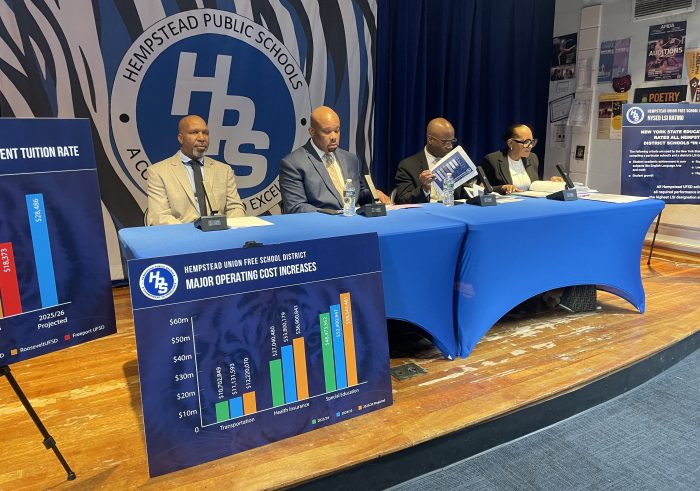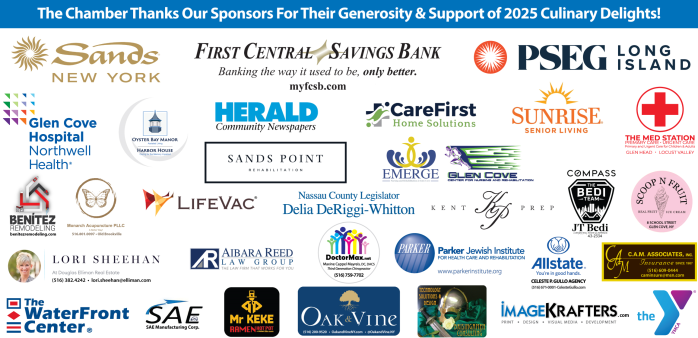Ever since the coronavirus outbreak disrupted daily life, New Era Technology’s phones began ringing off the hook as companies sought them out for improved telecom and video conferencing so workers could telecommute to avoid contagion.
Disney closed parks, major league sports seasons were suspended, the stock market crashed, schools were shuttered, and states of emergency were declared in local municipalities and nationally. But if this has been the worst of times from Wall Street to Main Street, certain businesses have seen, if not the best of times, surges in revenue. Telecom, delivery, sanitizers, drive-throughs, cleaning, and healthcare providers are all experiencing, for better or worse, rising demand.
“We’re busy,” says Zig Fekete, New Era Technology executive client manager in Islandia. “People are getting nervous and want to keep their employees safe, keeping them at home — and not letting employees who might be infected bring that infection back to the office.”
The coronavirus is leading to infections as well as seismic changes in behavior, as technology and remote access sometimes replace being there.
“You can do anything you can at the office other than stand around the water cooler and talk to everybody,” Fekete says. “We’re doing a lot more videoconferencing, instead of hand-to-hand combat, to avoid contact in spreading the virus.”
Louis Biscotti, Marcum LLP’s food and beverage practice leader, says that while restaurants, hospitality, catering, and travel take hits, delivery and some food makers are going strong.
“Delivery companies and big processed food companies [are doing well] as people are stocking up on staple goods,” Biscotti says.
The grocery hoarders are also boosting retailer sales.
“Small grocery stores and distributors are also seeing a surge in profits as customers stockpile for a quarantine scenario,” says Joe Camberato, president and co-founder of National Business Capital & Services, a small-business loan broker.
There is a huge rush for healthcare services, as people seek insight into whether they might be infected.
“Privately owned walk-in medical clinics and urgent care facilities are experiencing a surge in symptomatic visitors,” Camberato says.
Family Affair Distributing, which provides promotional products, decorated apparel, and printing services, saw a boost in orders for hand sanitizer branded with company names before supply dried up.
“Some of the last orders went in last week,” says Lisa Chalker, the company’s CEO. “Then the whole industry got hit. Our suppliers are inundated. They ran out of stock.”
The shutdown of trade shows reduced demand for promotional items and Chinese factories shut down, making it impossible to order many products.
“Because all the factories are closed, I can’t take on a job that’s a custom order,” Chalker says of certain custom products such as phone charger key chains. “A lot of conventions and trade shows are not happening now. That means my business clients may not have the need for trade show items which I help them with.”
Plastic bag bans, however, created an opportunity to make canvas bags with business names.
“Now people need tote bags,” Chalker says. “These are great ideas for my clients to give to their clients. It’s a great way to put out their brand to clients.”
Camberato says some “lenders are placing limitations on highly affected industries like restaurants, travel, retail, and entertainment” because they’re less likely to generate the cash to pay off loans.
“It’s certainly still possible to get funding,” he says, “but being in an industry or location affected by the virus makes it significantly more difficult.”
Chalker says promoting when others pause can position companies for revenues when business returns.
“In marketing, when you have a thing like this and you’re still visible, people perceive you as a stronger company,” she says. “When you come out of it, they’ll go to companies that stayed strong through that perilous time.”
New Era, meanwhile, says manufacturers such as Cisco and Avaya are giving away audio/videoconferencing software to not-for profits for extended time periods, to curb travel and boost productivity.
Fekete said he’s doing a lot of selling, making phone calls, but not visiting potential clients quite the way he once did.
“No more door knocks,” Fekete adds. “It’s going to be phone calls and emails until, of course, it’s safe to come out.”
Sign up for Long Island Press’ email newsletters here. Sign up for home delivery of Long Island Press here.

































